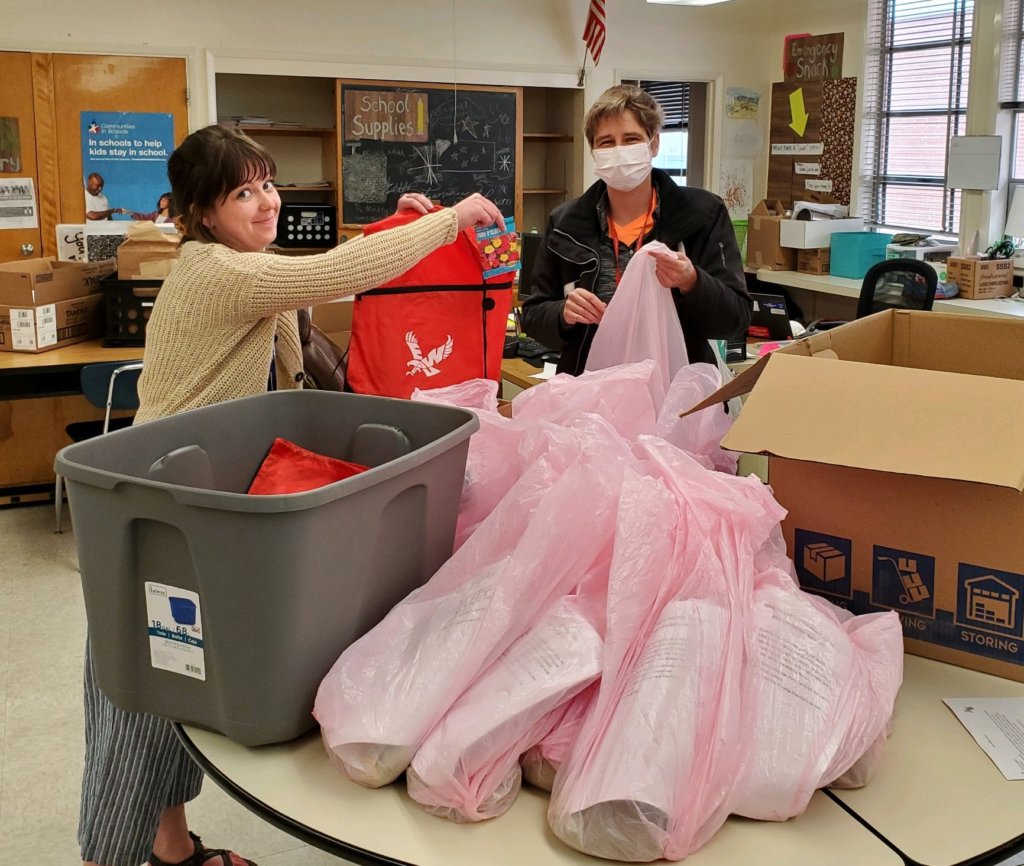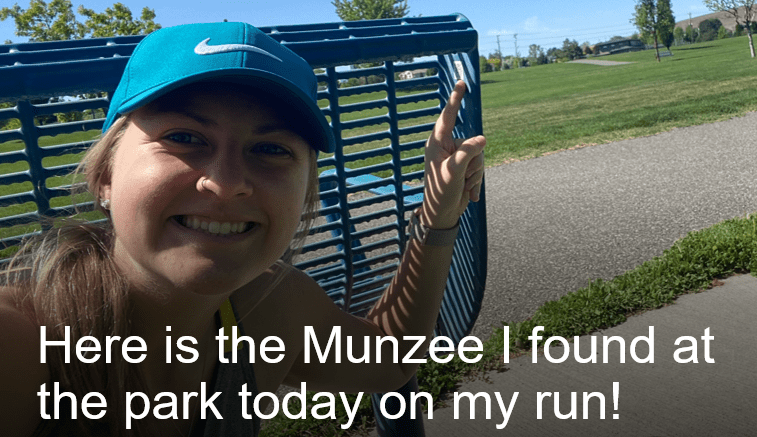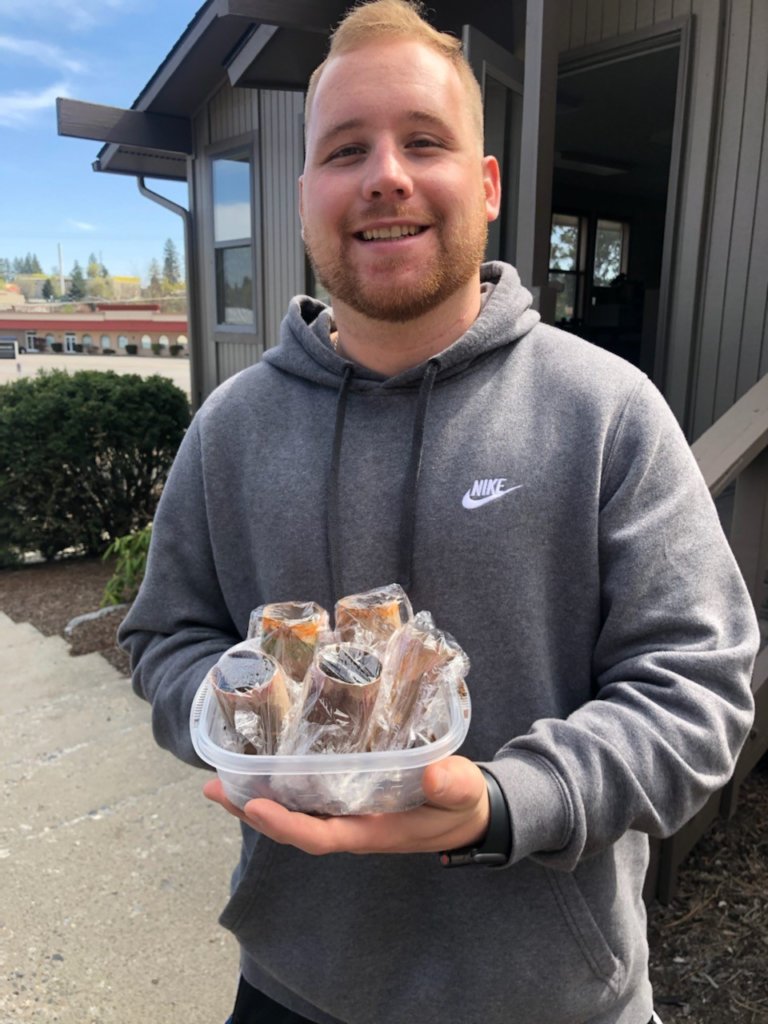How does a group of “Eagle Strong” students and faculty accommodate an after-school program for middle school kids during a pandemic? Well, they certainly don’t cancel it—they innovate!
Laurie Morley, a health and physical education professor at Eastern, developed her After School Programming class (HLED 300) from the ground up. Under normal circumstances, it involves a six-week program called Take Root, which pairs students at Spokane’s Shaw Middle School with EWU health and physical education students. In partnership with staff at Shaw and the Communities in Schools of Spokane County program, what started as a gardening-oriented education effort morphed into a complete gardening, nutrition, health and physical activity program. “There is a tremendous need for physical activity and nutrition after school,” Morley says.

Maddy Halverson is the Communities in Schools site coordinator at Shaw. She works directly with students who face various school and home-life challenges, such as food insecurity. She says many of them are eager for the one-on-one connection of an after-school activity.
“It’s pretty easy to promote this, kids are super excited about it,” says Halverson. “The big pull-in is that students get to cook and eat food—middle school students love food!”
Morley says the Eastern students feel a similar excitement.
“Students are in their second year of the program, so they’re excited to get out in the schools. They get to actually develop and implement what they’ve been doing,” she says. “And they’re working with students that probably have come from a situation that a majority of [EWU students] do not experience themselves. I think that’s a great experience.”
This spring, amid the COVID-19 pandemic, Morley and Halverson knew they’d have to get creative to ensure the mutually beneficial experience could continue during the state’s Stay Home, Stay Healthy order. Together they came up with the idea of a “mail tag” or pen pal program to allow the students to engage with each other.
Morley created six challenges, then tasked her students with developing the tools the Shaw kids would need to complete each challenge. Every week Morley delivers the activity packages to Halverson, and Halverson distributes them to the kids participating in the program. Activities so far have included recycled pot kits, an app-based scavenger hunt, a neighborhood walk map and chalk to create a sidewalk obstacle course.

In each kit, the Eastern students include instructions, photos and a description of their own personal experience completing the task. The Shaw student is then asked to share their experience by writing back.
“I wasn’t sure how it was going to go to begin with; getting middle school students in this situation to take part in something like this seemed far off,” says Jaid Harris, a senior majoring in health and physical education. While the response hasn’t been 100 percent, Harris is among the students who received a return letter from her pen pal.
“I have received one letter back so far. She is an 8th grade student at Shaw and is just as excited as I am to be exchanging letters,” says Harris. “The initial letter was one of the cutest things I have ever received. She loves to draw and even drew pictures of my animals I sent to her, as well as a self-portrait of herself. I would be lying if I said I didn’t tear up a little reading her letter.”
Logan Kurucz, a senior majoring in secondary health and fitness at Eastern, is another student fortunate enough to have made a connection via old-school pen and paper. “I have gotten a lot of feedback from my pen pal and have received a lot of pictures, explanations of their favorite animal—real or fake—hobbies they enjoy and lifetime goals they want to achieve,” he says.

Twenty-one Eastern students are in the class this year and actively sending letters and activity kits to Shaw. So far only about five middle school students have sent return letters, but organizers acknowledge that response is lower across many programs during virtual learning. Morley says she has assured the class that their impact is far greater than it may seem.
“I told my students, even though they might not get a reply back, the kids are probably still reading it and looking at it and engaging,” she says.
The Eastern students get it. As aspiring health and fitness educators, they know connections like these can make a lifelong impact.
“We are still finding ways to connect to students and provide them with activities that keep them active and informed on healthy life choices,” says Kurucz. “Informing these students at Shaw Middle School about the importance behind healthy lifestyles and mental health can improve their overall life currently and in the future.”
“A majority of these students come from backgrounds that aren’t very beneficial to their growth as humans and as students,” adds Harris. “My pen pal wrote to me that she aspires to go to college, despite no one in her family ever attending. I think it is important for me, as a college student, to be a role model and encourage her to start working hard for her college dreams.”
Morley hopes the program will return to it’s intended in-person after-school club next spring.
If you have an Eagle Strong story to share with us, please email us at inside@ewu.edu. You can also visit ewu.edu/strong to learn more about the university’s efforts during the pandemic.

